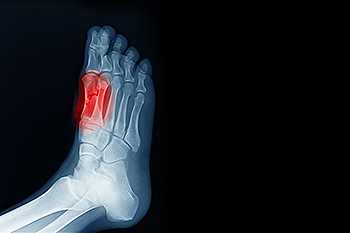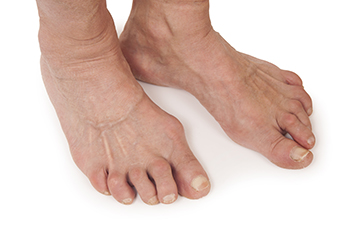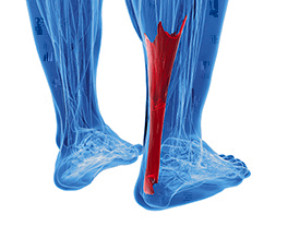Items filtered by date: February 2023
How Long Does It Take for Sesamoiditis to Heal?

Many patients afflicted with sesamoiditis often ask podiatrists how long it will take to heal from this condition. The answer is slightly complicated. Sesamoiditis occurs when the two sesamoid bones in the ball of the foot become aggravated and inflamed. The recovery time will be significantly dependent on the severity of the injury. For example, if a patient has a relatively minor case of sesamoiditis, they can expect their recovery time to be short. The recovery time might only be a few days if the foot is rested and treated properly. However, if a patient has a severe case of sesamoiditis, it may take longer to recover. If you believe you have sesamoiditis, it is suggested that you contact a podiatrist today who can provide treatment and a recovery timeline.
Sesamoiditis is an unpleasant foot condition characterized by pain in the balls of the feet. If you think you’re struggling with sesamoiditis, contact one of our podiatrists of Parkwood Podiatry. Our doctors will treat your condition thoroughly and effectively.
Sesamoiditis
Sesamoiditis is a condition of the foot that affects the ball of the foot. It is more common in younger people than it is in older people. It can also occur with people who have begun a new exercise program, since their bodies are adjusting to the new physical regimen. Pain may also be caused by the inflammation of tendons surrounding the bones. It is important to seek treatment in its early stages because if you ignore the pain, this condition can lead to more serious problems such as severe irritation and bone fractures.
Causes of Sesamoiditis
- Sudden increase in activity
- Increase in physically strenuous movement without a proper warm up or build up
- Foot structure: those who have smaller, bonier feet or those with a high arch may be more susceptible
Treatment for sesamoiditis is non-invasive and simple. Doctors may recommend a strict rest period where the patient forgoes most physical activity. This will help give the patient time to heal their feet through limited activity. For serious cases, it is best to speak with your doctor to determine a treatment option that will help your specific needs.
If you have any questions please feel free to contact our offices located in Brunswick and Hinesville, GA . We offer the newest diagnostic and treatment technologies for all your foot and ankle needs.
Education Requirements for Foot Doctors

There are many branches of medicine, and podiatry focuses on the conditions of the feet and ankles. These can include deformities, growths, and problems that are associated with diabetes and arthritis. There are various places to practice podiatry, consisting of hospitals, clinics, nursing homes, or owning a practice. The mandatory education requirements include obtaining a bachelor's degree, which is followed by earning a Doctor of Podiatric Medicine (DPM) degree. This is done by attending podiatry school and enrolling in courses such as biology, chemistry, and physics. This program lasts four years, and upon completion, students will attend a residency program for three years. Extensive training may be needed for more specialized fields of podiatry. If you are interested in pursuing a career in podiatry, speaking with this type of doctor may help you in determining if this is the correct choice for you.
If you are dealing with pain in your feet and ankles, you may want to seek help from a podiatrist. Feel free to contact one of our podiatrists from Parkwood Podiatry. Our doctors can provide the care you need to keep you pain-free and on your feet.
What Is a Podiatrist?
A podiatrist is a doctor of podiatric medicine who diagnoses and treats conditions of the foot, ankle, and related structures of the leg. Your podiatrist may specialize in a certain field such as sports medicine, wound care, pediatrics, and diabetic care. Podiatrists have the ability to become board certified through training, clinical experience, and then taking an exam.
What Do Podiatrists Do?
On a daily basis, a podiatrist may perform the following activities:
- Diagnose foot ailments such as ulcers, tumors, fractures, etc.
- Use innovative methods to treat conditions
- Use corrective orthotics, casts, and strappings to correct deformities
- Correct walking patterns and balance
- Provide individual consultations to patients
It is very important that you take care of your feet. It’s easy to take having healthy feet for granted, however foot problems tend to be among the most common health conditions. Podiatrists can help diagnose and treat a variety of feet related conditions, so it is crucial that you visit one if you need assistance.
If you have any questions please feel free to contact our offices located in Brunswick and Hinesville, GA . We offer the newest diagnostic and treatment technologies for all your foot and ankle needs.
Stretches Can Help Symptoms of Rheumatoid Arthritis

Improved circulation may help people who have rheumatoid arthritis. This may be accomplished by performing gentle stretches which may ease joint stiffness. Additionally, the range of motion can increase from the joint fluids moving easier. When this condition affects the feet, it is often difficult to complete daily tasks. The gait may become altered to accommodate for the pain, and many people find they begin to limp. When the ankle is flexed and stretched, existing swelling may be relieved, and the ankle joints may become strengthened. Performing toe curls may help the balls of the feet and toe joints. This is done by curling the toes down while sitting in a chair, followed by extending them upward. If you are afflicted with rheumatoid arthritis in the feet, please consult a podiatrist for additional pain relief methods.
Because RA affects more than just your joints, including the joints in your feet and ankles, it is important to seek early diagnosis from your podiatrist if you feel like the pain in your feet might be caused by RA. For more information, contact one of our podiatrists of Parkwood Podiatry. Our doctors will assist you with all of your podiatric concerns.
What Is Rheumatoid Arthritis?
Rheumatoid Arthritis (RA) is an autoimmune disorder in which the body’s own immune system attacks the membranes surrounding the joints. Inflammation of the lining and eventually the destruction of the joint’s cartilage and bone occur, causing severe pain and immobility.
Rheumatoid Arthritis of the Feet
Although RA usually attacks multiple bones and joints throughout the entire body, almost 90 percent of cases result in pain in the foot or ankle area.
Symptoms
- Swelling and pain in the feet
- Stiffness in the feet
- Pain on the ball or sole of feet
- Joint shift and deformation
Diagnosis
Quick diagnosis of RA in the feet is important so that the podiatrist can treat the area effectively. Your doctor will ask you about your medical history, occupation, and lifestyle to determine the origin of the condition. Rheumatoid Factor tests help to determine if someone is affected by the disease.
If you have any questions please feel free to contact our offices located in Brunswick and Hinesville, GA . We offer the newest diagnostic and treatment technologies for all your foot and ankle needs.
Symptoms and Causes of Achilles Tendonitis

When the back of the heel hurts, it may be caused by a condition known as Achilles tendonitis. This ailment occurs when the strong Achilles tendon becomes inflamed, largely the result of overuse or a sudden increase in activity. Symptoms include pain, stiffness, and discomfort above the area of the heel that is used when stretching or standing on your toes. There are two types of Achilles tendonitis, insertional and noninsertional. The former is the result of tiny tears that occur when the lower portion of the tendon breaks down. The latter is when the tears occur in the middle part of the tendon. Common ways the Achilles tendon becomes compromised include failing to warm up before exercise, wearing high heels, and increasing activity too quickly. Other causes include overpronation, bone spurs, and gout. To find out more about dealing with the pain of Achilles tendonitis, please consult a podiatrist.
Achilles tendon injuries need immediate attention to avoid future complications. If you have any concerns, contact one of our podiatrists of Parkwood Podiatry. Our doctors can provide the care you need to keep you pain-free and on your feet.
What Is the Achilles Tendon?
The Achilles tendon is a tendon that connects the lower leg muscles and calf to the heel of the foot. It is the strongest tendon in the human body and is essential for making movement possible. Because this tendon is such an integral part of the body, any injuries to it can create immense difficulties and should immediately be presented to a doctor.
What Are the Symptoms of an Achilles Tendon Injury?
There are various types of injuries that can affect the Achilles tendon. The two most common injuries are Achilles tendinitis and ruptures of the tendon.
Achilles Tendinitis Symptoms
- Inflammation
- Dull to severe pain
- Increased blood flow to the tendon
- Thickening of the tendon
Rupture Symptoms
- Extreme pain and swelling in the foot
- Total immobility
Treatment and Prevention
Achilles tendon injuries are diagnosed by a thorough physical evaluation, which can include an MRI. Treatment involves rest, physical therapy, and in some cases, surgery. However, various preventative measures can be taken to avoid these injuries, such as:
- Thorough stretching of the tendon before and after exercise
- Strengthening exercises like calf raises, squats, leg curls, leg extensions, leg raises, lunges, and leg presses
If you have any questions please feel free to contact our offices located in Brunswick and Hinesville, GA . We offer the newest diagnostic tools and technology to treat your foot and ankle needs.
